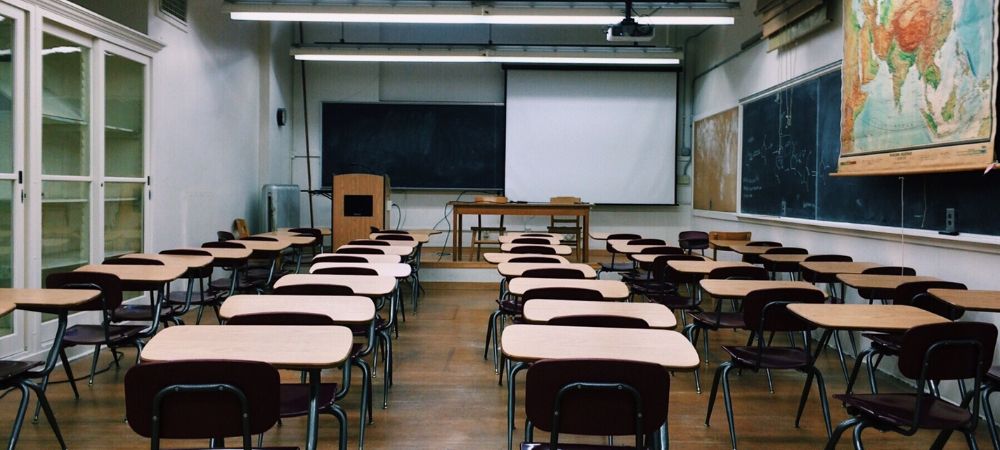

Student assessment is so important in education, like, you wouldn't believe! It helps teachers see how well students are doing and where they might need help. Without assessment, we wouldn't know if students are understanding the material or if they need extra support. It's like a road map for teachers to guide their instruction and make sure all students are learning. And let me tell you, assessments aren't just about grades - they can also show growth and progress over time. So next time you think assessments are a drag, remember how crucial they are for student success!
To read more see this.When it comes to student assessment in schools, there are various types of assessments that teachers use to measure student learning. These can include formative assessments, like quizzes and homework assignments, which are ongoing checks of understanding throughout a unit or lesson. Then there are summative assessments, such as tests and final projects, which evaluate a student's overall knowledge at the end of a unit or course.
Other types of assessments used in schools can include performance tasks, where students demonstrate their skills through presentations or projects; portfolios, which showcase a student's work over time; and standardized tests, like state exams or college entrance exams.
While some students may not enjoy taking tests or completing assignments for assessment purposes, these tools are essential for teachers to gauge how well students are grasping the material and where they may need additional support. So next time you're feeling frustrated with an assessment task, just remember that it's all part of the learning process!
Hey there!. So, let's talk about transforming your future with quality education opportunities.

Posted by on 2024-05-02
As we look ahead to the future, it's clear that technology will continue to have a profound impact on education.. From virtual reality to artificial intelligence, there are countless innovations that will shape the way students learn and teachers teach.
One major trend in educational technology is personalized learning.

Posted by on 2024-05-02
Parental involvement in early childhood education initiatives is so crucial!. It can have a huge impact on a child's development and success later in life.

Posted by on 2024-05-02
When it comes to promoting diversity and inclusion in schools, evaluating progress and making adjustments is key to ensuring continued commitment.. It's important that we constantly assess how we are doing and take steps to improve if needed.

Posted by on 2024-05-02
Continuous assessment is a valuable tool for student learning, ain't it? There are many benefits to this method of evaluating students throughout the school year. One advantage is that it allows teachers to track students' progress more effectively than just one big exam at the end of term. This helps them identify areas where students may be struggling and provide additional support when needed.
Another benefit of continuous assessment is that it can help students stay engaged and motivated in their learning. When they receive feedback on a regular basis, they can see how they are improving over time and feel more confident in their abilities. Plus, ain't nobody likes cramming for a big test at the last minute, right?
Furthermore, continuous assessment can help students develop important skills like critical thinking and problem-solving. By completing assignments and quizzes throughout the year, they have more opportunities to practice these skills and apply them to real-life situations. This can prepare them better for success in college or the workforce down the road.
In conclusion, continuous assessment has many advantages for student learning. It allows teachers to track progress effectively, keeps students engaged and motivated, and helps them develop important skills for the future. So next time you hear about continuous assessment in your class, don't groan - embrace it as a valuable tool for your education!

So, when we talk about strategies for effective student assessment, there are some key things to keep in mind. First off, it's important not to just rely on one type of assessment. You gotta mix it up, ya know? Using a variety of assessments can give you a more well-rounded view of a student's understanding and progress.
Another thing to consider is providing timely feedback. Ain't nobody gonna improve if they don't know what they're doing wrong. By giving feedback quickly, students can make corrections and learn from their mistakes.
Also, it's crucial to involve students in the assessment process. Let them set goals and track their own progress. This can help them take ownership of their learning and feel more motivated to succeed.
Lastly, remember that assessments should be fair and unbiased. Don't let personal biases or stereotypes cloud your judgment. Treat all students equally and give everyone a fair chance to show what they know.
In conclusion, by using a variety of assessments, providing timely feedback, involving students in the process, and ensuring fairness, you can create an effective student assessment strategy that helps students succeed.
Educators face many challenges when conducting assessments for student assessment. It can be difficult to accurately measure a student's understanding and progress in a subject. One of the biggest issues is finding the right balance between formative and summative assessments. Teachers must also consider the diverse learning styles and abilities of their students, which can make it challenging to create fair and effective assessments.
Additionally, educators often struggle with limited time and resources when designing and administering assessments. They may not have access to the necessary tools or technology to create engaging and interactive assessments that accurately reflect a student's knowledge. This can lead to assessments that are too simplistic or do not provide enough depth for meaningful evaluation.
Furthermore, educators must contend with external pressures such as standardized testing requirements and expectations from parents, administrators, and policymakers. These factors can create added stress and anxiety for teachers who are trying to conduct fair and equitable assessments for their students.
In conclusion, while there are many challenges faced by educators in conducting assessments for student assessment, it is important for teachers to continue striving for excellence in their assessment practices. By being mindful of these obstacles and seeking out support from colleagues, mentors, and professional development opportunities, educators can work towards creating more effective assessments that benefit all students.

Feedback be very important in helping improve student performance. It can show students what they do well and where they need to work harder. Without feedback, students may not know how they are doing, so they can't make any changes to get better.
When a teacher gives feedback, it can motivate students to keep trying and put in more effort. It also helps them understand their mistakes and learn from them. If teachers don't give feedback, students may feel lost and not know how to improve.
Feedback should be clear and specific so that students know exactly what they need to do differently. It's also important for teachers to give feedback regularly, not just at the end of a project or test.
So next time you get some feedback from your teacher, remember that it's there to help you become a better student!
The use of technology in modern assessment methods be a game-changer for student evaluation. With new tools and software, teachers can create more interactive and engaging assessments that better reflect the students' understanding. Gone are the days of boring multiple-choice tests, now we have simulations and virtual reality experiences to test our knowledge.
Technology not only make assessment more fun, but also help save time for both teachers and students. No longer do we need to spend hours grading papers by hand, now everything be done automatically with just a few clicks. And let's not forget about the instant feedback that technology provide - no more waiting weeks for grades!
Of course, there be some drawbacks to using technology in assessments. Some students may struggle with the new format or have difficulty navigating the digital tools. However, these issues can often be overcome with proper training and support from teachers.
Overall, the use of technology in modern assessment methods bring many benefits to both educators and students alike. It allow us to assess learning in a more efficient and effective way, while also making the process more enjoyable for everyone involved. So next time you have an assessment coming up, don't dread it - embrace the technological advancements that make it all possible!